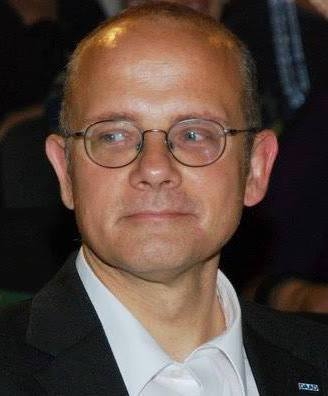Russia's relationship to democracy has been historically closer than some people, both in- and outside Russia, assume. As early as in December 1825, Tsarist Russia experienced an abortive palace revolution by a group of idealistic, young, liberal aristocrats who were later called "the Decembrists."
Why is Russia not yet a democracy, and what can today's Decembrists, i.e. the protesters of December 2011, learn from their predecessors' earlier errors? At least, with regard to Russia's last democratization attempt that started around 1987, one lesson should be clear: Russian democracy cannot materialize as long as Russia's various democratic groups and factions keep criticizing each other almost as much as they do with regard to their authoritarian enemies.
As it looks now, the current democratization attempt may fail because of the same paradoxes that hampered similar drives before: Russia's democratic movement is not too small, but too multifarious. It has too many rather than too few parties, leaders and factions. Its activists are too proud, too full of themselves and too intellectual to unite with each other across the democratic spectrum for a real fight for political power.
Instead, we see again a proliferation of options, organizations, leaders, programs etc. - much like in the 1990s. That was the time when Grigory Yavlinsky became infamous for his pseudo-politics: always high on ethics and analysis, but never of much consequence. Like Yavlinsky back then, many of today's liberals think that being a politician means making many moralistic announcements, having one's own little party, posing as a chairperson of some organization, getting as much Western exposure as possible, being interviewed by many international journalists, etc. In short, many Russian democrats seem to mistake public activity, civic action and media buzz for politics proper. Were they real politicians, they should be more busy with a different kind of activities: creating coalitions, seeking political partners, building regional organizations, and reaching for suitable contacts in the authoritarian regime. In short, they should be preparing to take over power instead of being engaged in endless self-promotion - sometimes, at the expense of their ideologically close colleagues.
What can political science add to the general perception about the unsuitable culture in the Russian democratic movement? The non-cooperative attitude of some Russian democrats is particularly problematic because of a lack of effective political space for them, and because of their need to find allies in the authoritarian regime - in order to overcome it. What does that mean?
First, political space in Russia is limited. The liberal-democratic spectrum (not to be mixed with Zhirinovskii's misnamed LDPR) faces three significant anti-liberal camps: the authoritarian conservatives of the current regime, the nationalistic communists from the past, and the new ultra-nationalist right-wing movement. Thus, the effective Russian political spectrum already consists of not less than four relevant camps. In a normal democracy, that would result in a four-party system. However, in the Russian case, only the authoritarian and communist camps are more or less consolidated through "United Russia" and the CPRF (with "Just Russia" being a young and hybrid phenomenon which is difficult to classify). In contrast, the democrats and - fortunately for Russia and the world - ultra-nationalists are divided into a multitude of groups and grouplets who are busy quarrelling with each other.
One suspects, to be sure, that there might be also the potential for a social-democratic party, in Russia. One day, there could be thus a left-liberal, i.e. social-democratic, on the one side, and a right-liberal, e.g. Christian-democratic, party, on the other. There could be also potential for a purely liberal party similar to the German FDP or British LibDems - both very different from the Russian LDPR, and somewhat distinct from each other.
Second, historically, transitions to democracy have happened when the moderates within a rising anti-authoritarian movement were able to link with, and generate support from, the reformist wing of the old regime. For instance, in late Soviet Russia, it needed an alliance of reformers in the communist party leadership, including Mikhail Gorbachev, Alexander Yakovlev and others, on the one side, with the informal, democratic movement, outside the existing structures, to produce the proto-democracy of the 1990s. This implies for today that internal cohesion is not enough for the Russian liberal movement. It also needs to seek and find allies inside the state apparatus, including the highest echelons of power. Without such an alliance, the most likely outcome of the current protests will be either the survival of the current regime, perhaps, with some modifications, or its replacement with another authoritarian regime, as happened in 1917.
Cooperation with representatives of the current status quo is, of course, a complicated issue - at least, within the context of the specific culture of Russia's liberal milieu. Both, the December demonstrators and the liberal party leaders like to proceed from a "purist" position: no collaboration with anybody tainted with, or even suspected of, cooperating with the current authorities, on the federal level. While such purism may look principled and consistent, it is not pragmatic and represents an ultimately anti-political attitude.
The liberals' refusal to look for partners in the regime might have to do less with the specifics of the authoritarian regime in Russia than with peculiar, decades-old pathologies of Russian intelligentsia culture. Russia's democrats' pickiness looks odd in view of some of their previous alliances.
One can only hope that, finally, Russia's liberals can free themselves from the "Yavlinsky Syndrome," and the defects of the intelligentsia culture that have hampered the Russian democratic movement for almost 150 years now. Russian liberalism will have to transform itself from a merely intellectual and civic movement into a properly political one. Who is in the liberal-democratic camp and who is out should be determined by the political views, record and relevance of a person, and not by private animosities and anti-political maximalism.
An different version of the article has earlier appeared in "Le Monde diplomatique."





